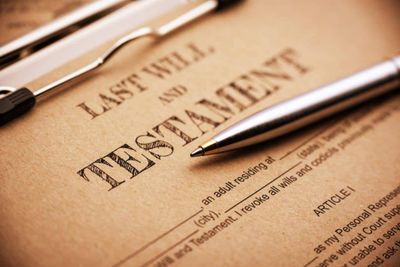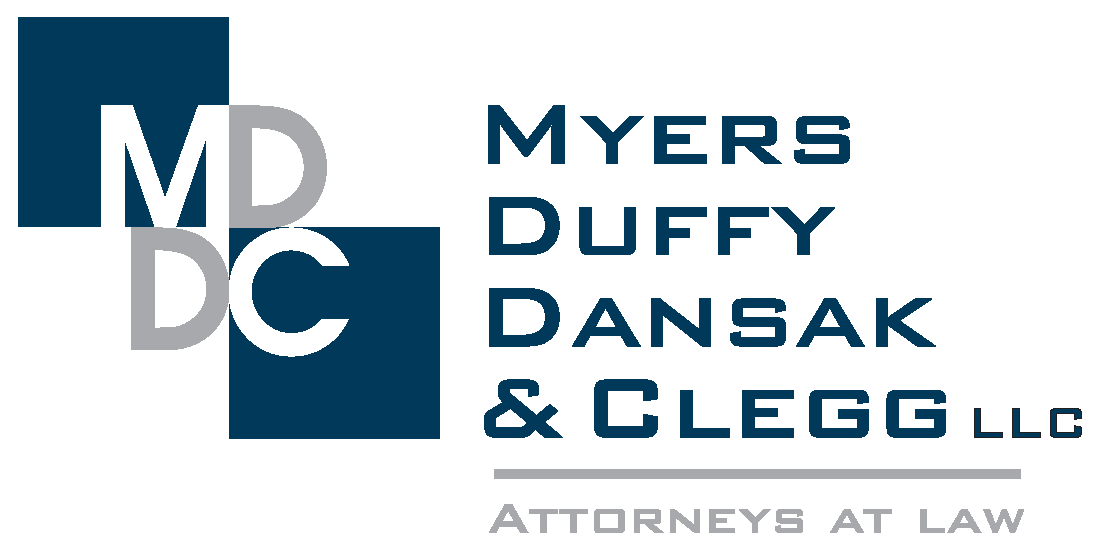Estate and Probate Law
Estate Administration
The loss of a loved one can be one of the most emotionally trying times in one's life. Estate Administration and Probate Lawis the process of transferring title to assets from someone who has passed away to that person's legal heirs. There are multiple considerations for how one's estate is handled, including whether the person died with a will (Testate) or without a will (Intestate).
Included in the Estate Administration and Probate process is the proper notification of heirs and the payment of any inheritance taxes that are due to the Commonwealth of Pennsylvania and perhaps the IRS.

The Estate Administration and Probate process is extremely complicated in the Commonwealth of Pennsylvania and it is not advisable to attempt to maneuver through the requirements of the Orphans' Court without an attorney. Many people believe that their tax accountant can file the necessary paperwork for inheritance taxes, but the process of administering an estate is legal in nature, and should be handled by an attorney.
Protecting Assets through Estate Planning
“Estate Law” is a broad term that encompasses Wills, Trusts, Powers of Attorney, Living Wills, and parts of Elder Law. By planning your estate now and making decisions about your assets and your healthcare, you can avoid family disputes and unnecessary payments for skilled nursing home care. More importantly, you can ensure your assets are passed to the loved ones that you choose.
Proper planning can make sure that your assets are left to your loved ones upon your passing and protect your money from unnecessarily being paid for nursing home care. The attorneys at MDDC Law Office
create comprehensive estate plans that protect your assets and assure that your wishes for your medical treatment are carried out as you direct.
Estate Planning
Wills
If you die in Pennsylvania without a Last Will and Testament (“Will”), the Commonwealth of Pennsylvania has laws that determine who gets your property. It is probable that the way in which the Commonwealth of Pennsylvania chooses to distribute your property will be different from how you would have chosen to do so. By having a properly executed Will, you can pass your assets to the person or persons of your choosing.
Trusts
While many law firms advise clients that drafting a Revocable Trust is the best means by which to plan your estate, rarely is that the case. In reality, Revocable Trusts do very little to save taxes or costs, and cost a great deal more to draft than a simple Will. The attorneys at MDDC Law Office carefully review your assets and estate planning goals and only advise using Trusts when they are appropriate and when they will accomplish your estate planning goals.
Powers Of Attorney
Having a Power of Attorney (POA) is one of the most important parts of the estate planning process. Many clients are under the impression that a POA allows someone to put them in a nursing home and throw away the key. In reality, nothing could be further from the truth.
POAs are drafted by a Principle (you) and gives your Agent (someone you trust very much) the ability to make financial decisions on your behalf – but only for your benefit. While POAs allow the Agent to have limited powers to apply for care to a nursing home, so long as you have mental capacity, a POA can be drafted in such a manner as to be fully and easily revocable.
Living Wills
While no one wants to contemplate end-of-life decisions, making them when you are healthy not only protects you from someone making decisions for you when you are not well, but also protects your family from disagreements about what they think your wishes would be. A living will is a legally binding document that can direct your doctors to withhold certain invasive medical procedures should you become unable to communicate your own wishes for your care.
Elder Law
Elder Law is a term that includes Estate Planning and Medicaid Planning. By carefully planning how to gift your assets to your children while you are healthy, you can substantially reduce the amount of money your family needs to spend should you ever require skilled nursing home care. The term “Elder Law” includes not only the general Estate Planning practices of Wills, POAs, and Living Wills – but also more specific planning techniques such as Medicaid Planning, Veterns' Benefits, Special Needs Planning, Long Term Care Insurance Planning, and Family Caregiver Agreements.
Contact a Lawyer
To arrange for a no-obligation consultation with attorney Ryan L. Dansak or attorney John J. Myers, call 724-864-9800
for our Irwin Office, or 412-672-9644
for our White Oak office. We may also be reached by email at LawOffice@MDDCLawOffice.com.






